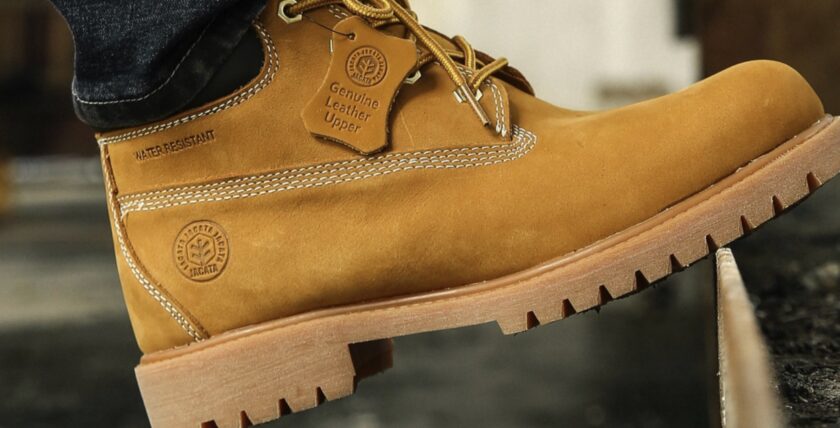Safety Shoes: A Must-Have for Workplace Protection

Your thoughts about protective equipment at work most likely go directly to hard hats, gloves, or perhaps safety glasses. But you should be aware of something usually ignored—your feet. Though they might not be the most eye-catching component of your work attire, safety shoes are necessary for maintaining your comfort and safety during your shift.
Your feet deserve appropriate protection, whether you are in a bustling kitchen, a warehouse, or on a construction site. Read on to learn more about the importance of wearing safety shoes.
Why Safety Shoes Matter
All day long, they carry you about, soak up the shock from every step, and assist you in remaining balanced in challenging situations. Imagine now performing all of that in an unprotected, risky work environment. One miscalculation or dropped item could cause more serious injuries, including fractures and sprains.
That’s where safety shoes come in. Specially made to shield your feet from typical workplace dangers such as falling objects, sharp items, slick flooring, or even electrical shocks. Wearing them isn’t just a smart choice—it’s often a legal requirement in many industries.
What Makes a Shoe “Safe”?
Not all shoes labelled “tough” or “durable” actually qualify as safety shoes. To count as proper safety footwear, they need to meet specific standards depending on your location or industry. That might consist of characteristics such as:
- Steel or composite toe caps to prevent injuries from dropped tools or equipment.
- Slip-resistant soles to reduce the risk of falls, especially in wet or oily conditions.
- Puncture-resistant midsoles that protect your feet from nails or sharp objects.
- Depending on your surroundings, heat-resistant or waterproof fabrics.
- Protection against electrical hazards for those operating close to live wires or circuits.
The correct pair of safety shoes should provide comfort and support in addition to protection. Wearing the incorrect shoes could leave you coping with exhaustion, blisters, or back problems; long hours on your feet can be taxing.
Industries Where Safety Shoes Are Essential
Although generally linked with construction and heavy industry, safety shoes are required in a surprisingly large number of offices. Such as:
- Construction: Where sharp tools and heavy machinery present ongoing hazards.
- Manufacturing & Warehousing: To protect against falling items, pallet jacks, or machinery.
- Healthcare: Where non-slip shoes help avoid slips in fast-paced, fluid-prone settings.
- Food Service: Kitchens are full of hot liquids, slippery floors, and dropped knives.
- Electricians & Engineers: Who need protection from electrical hazards and sharp debris.
Even office workers who frequently visit industrial sites or warehouses may be required to wear safety footwear during site inspections.
Choosing the Right Pair
Choosing the appropriate safety shoe could be somewhat daunting given all the styles and features on offer. Here are some suggestions:
- Know your workplace risks: Choose footwear that is appropriate for the specific dangers you may face.
- Check comfort and fit: Try them on with your usual work socks and walk around to ensure they feel good.
- Look for certified brands: Look for shoes that satisfy national safety criteria rather than inexpensive knockoffs.
- Consider your daily routine: If you’re walking a lot, look for lightweight options with arch support.
It’s also worth investing in a second pair if you work in environments with extreme temperatures or wet conditions.
Keep Your Feet Safe, Keep Yourself Protected
Safety shoes are your first line of defence against workplace accidents, at the end of the day, not only another box to complete. One moment of bad luck can result in an injury that could have been easily avoided with the correct shoes. Therefore, if you mean to be safe and work at your best, don’t cut corners on your shoes.
Spotted something? Got a story? Send a Facebook Message | A direct message on Twitter | Email: [email protected] Latest News








